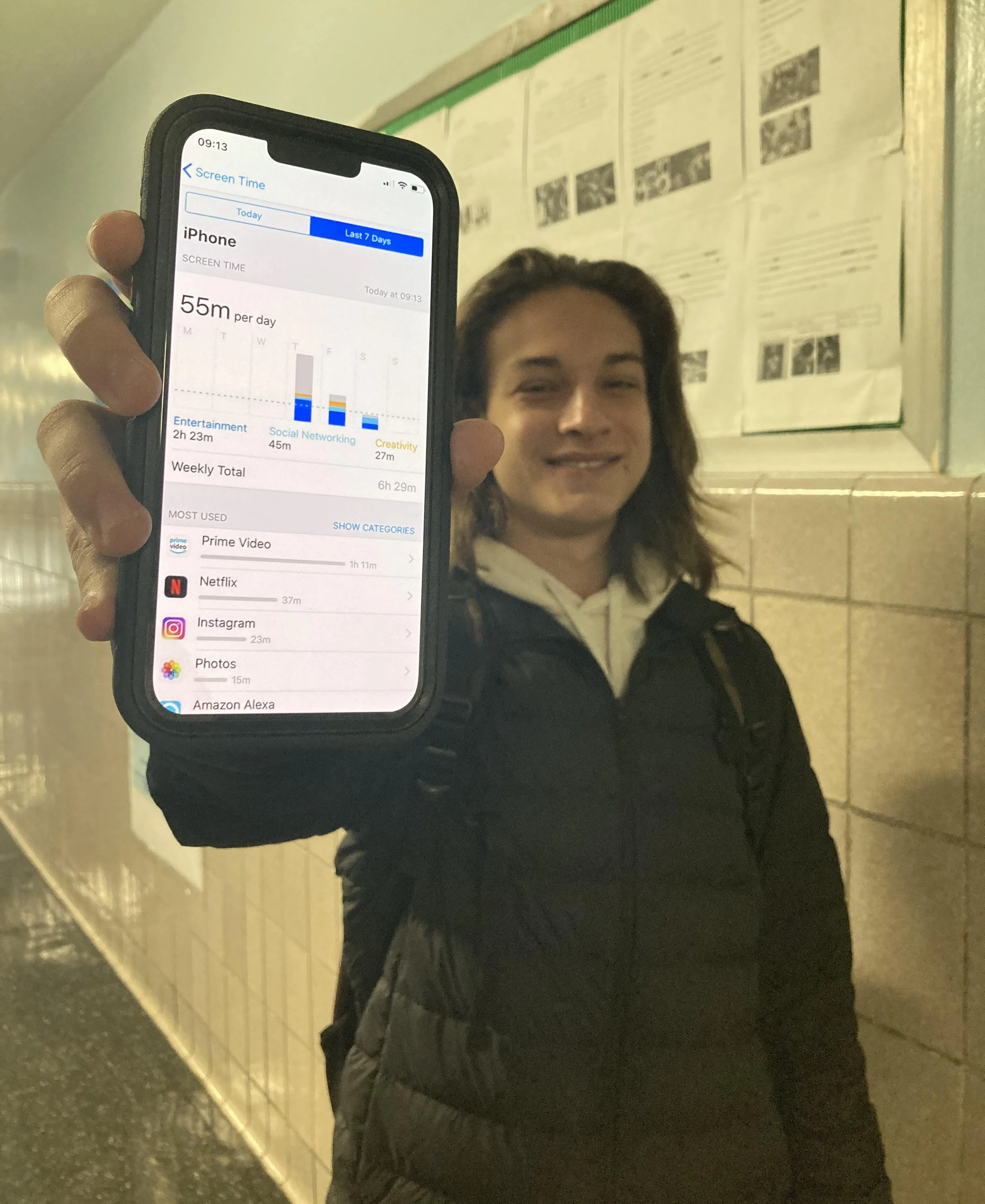I Went a Week Using My Phone for Less than One Hour Per Day
Shust found himself noticing nature more and focusing better on his schoolwork. Photo: Kevin Shi
By KEVIN SHI and KEVIN SHUST
How many hours a day do you spend on your phone? Six? Seven? Ten? You can check your screen time on your phone’s settings if you dare to find out.
Besides the fact that there are probably better ways to spend your time, the consequences of “too much” screen time can be serious. Did you know, for example, that according to psychologist Jean Twenge, teenagers who use electronic devices for at least five hours a day are 71 percent more likely to have a risk factor for suicide, such as depression?
For a teenager, a five hour daily screen time limit may seem unreasonable. But what about one hour? Is that even humanly possible?
I, junior Kevin Shi, decided to find out, working with junior Kevin Shust, who would be the guinea pig for my experiment. We used journals and interviews to collect data after placing a one-hour daily restriction on Shust’s weekly phone screen time for one week, from Sunday through Saturday.
Prior to our experiment, Shust spent roughly six hours a day on his phone most weeks. He mentioned that his screen time grew since the Covid-19 quarantines. It wasn’t easy getting out of the habit. “Once I got on the bus, I automatically reached for my phone and remembered that I couldn’t use it,” Shust said.
Like many teens, Shust uses his phone to entertain himself whenever he is bored, by texting, watching YouTube videos, checking with his friends on TikTok, or playing games like True Skate.
“Not being able to use those apps during class and lunchtime was painful because I had nothing to do,” said Shust.
From his Tuesday diary, I found that Shust was starting to pay more attention to school and his surroundings during his classes. He went to the library instead of the school cafeteria to do his work to keep himself busy and to keep his mind off his phone. He had to hold back the urge to look through his notifications and messages and tried to divert his attention to more productive activities like his homework.
On Thursday, Shust picked up a book from the library during one of his free periods. “I wanted to listen to music in school a lot,” Shust said, “but I got worried that that was going to make my [available] phone time even less.” Shust also noticed he was observing nature more as he walked to and from school.
Blue light from cell phones can disrupt the body’s production of melatonin, the hormone that regulates sleep. The percentage of teenagers who sleep for less than seven hours a night has been rising since the iPhone was invented. Besides tiredness, not having enough sleep can lead to long-term health problems. By adjusting his sleep time during the Screen Time Challenge, Shust became more focused the following day and finished all his work without difficulties.
On Thursday night, the phone limit became a struggle, as “there was nothing else to do” after he finished his homework, Shust said. On Saturday, he said, "I was expecting today to go badly since I was going to be home, but I went outside with friends instead.”
At the end of the experiment, I concluded that Shust had become more focused, on-task, and aware of his surroundings. My subject himself recommended restricted phone usage for high school or college students who have trouble paying attention to work or social interactions. Much of this applies to me and could apply to others as well.
“I think that phones take up so much time that can be spent on doing something more useful and productive in life,” Shust said. “Never waste time on things that can be bad for you. Think about what you could have been able to learn if you weren’t on your phone.”

